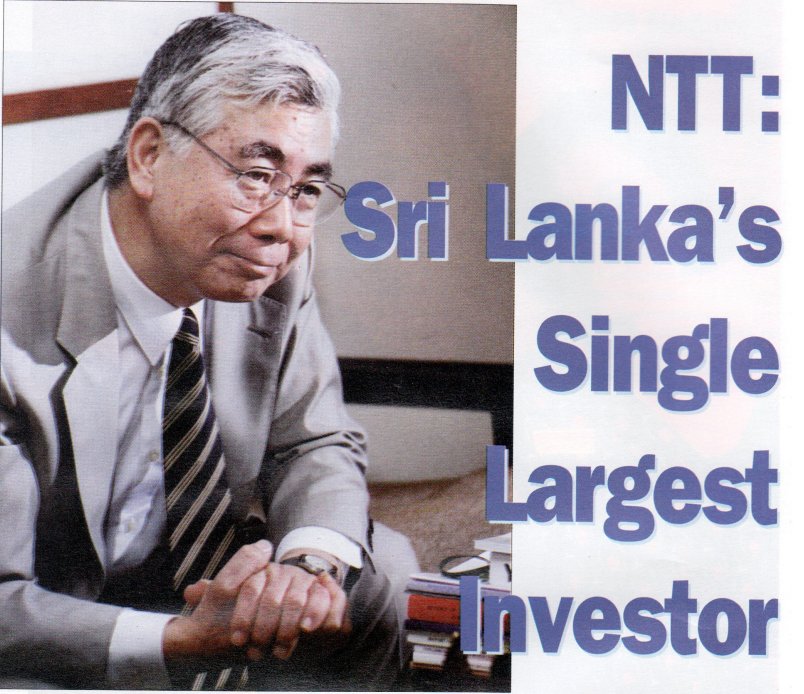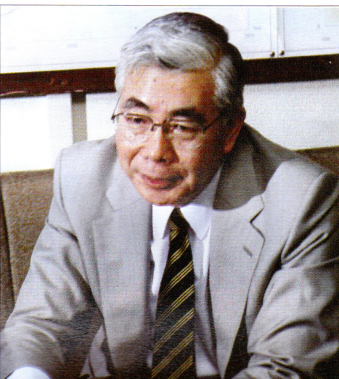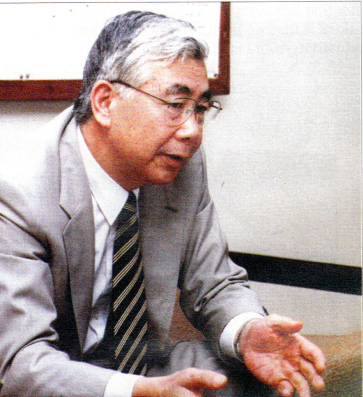
Dilki Wijesuriya
Nippon Telegraph & Telephone Corporation (NTT) of Japan acquired 35% of Sri Lanka Telecom in the recent divestiture of Sri Lanka Government shares in Sri Lanka Telecom (SLT) making their US$225 million investment the single largest the country has seen so far. ‘Business Today’ interviewed Hideaki Kamitsuma, the new chief executive officer of SLT who said ‘I would like to send my staff a message, i.e., to be confident that we are in a position to meet the public demand for telephones, to be open to their criticisms and complaints because we can meet them. Also, we have to be more autonomous in making judgments and decisions and most importantly, give quick results in meeting the demands of those we service.’
What were the main factors that influenced NTT to invest in Sri Lanka?
NTT’s strategy, firstly, is focused in Asian countries. Other mega telephone operators are looking at different areas in the globe whereas NTT’s main focus is Asia. Secondly, it’s NTT’s desire to enter into the domestic market of these countries and to improve and develop telecom services in their chosen areas, from the ground up. Thirdly, NTT intends to develop and maintain a friendly relationship with the countries they invest in and fourthly, they intend to provide international services between these countries. Apart from that, NTT took advantage of a very good opportunity the Sri Lankan Government gave them to invest in this country. NTT’s investment in Sri Lanka is one of the many interests they have in this region such as in Indonesia, Philippines, Thailand, India etc. So, NTT sees Sri Lanka as a country with lots of opportunities.
In other words you think Sri Lanka’s telecom market has a big enough demand?
Yes. The penetration rate in this country is very low -less than 300,000 lines up until now. Sri Lanka has a huge potential therefore, for sustainable growth in the future. One of the main potentials I see for Sri Lanka is for it to become a hub in the South Asian region like Hong Kong is in mainland China and Singapore in the South East.
You are obviously looking at this investment on a long term basis. How have you taken into consideration the long term macro economics of the country?
We have every confidence that Sri Lanka will grow in the long run. This is just the beginning of a long term growth plan, and that is why NTT investors are here. Also, Sri Lanka and Japan have throughout maintained friendly relations and I am glad to say that our investment is based on this relationship between the two countries.
How much more do you intend investing in this project and how much do you intend the Sri Lanka Government to invest?
At this moment we are not considering any other additional investment in this project. SLT is now an independent company and as it’s CEO I am not expecting a further investment from NTT or the Sri Lankan Government. Yes, we need more money to invest in telecommunication services in this country but we have to look to other sources for funds i.e., new loans, internal funds etc. Of course, the Government and NTT will support us but we have to generate funds through our own efforts.
You have 35% of Telecom. What is your agreement with the Government with regard to the other 65%?
My task is to see that this company improves its services as well as its financial base in readiness to go public in the future, which means the government will be able to sell their shares in SLT to the public within several years. Of course, NTT has options to buy more shares in the company but that’s also in the future.

The Government says they will not retrench. Do you feel that Sri Lanka Telecom can be run efficiently with your present cadre?
I understand there is some kind of agreement between the Government and the Unions that there will be no retrenchment in this privatization of SLT. At the same time it is my feeling that many SLT people are aware that this company is not run very efficiently. My thinking is that we have to improve our efficiency and productivity to meet the tremendous demand of the public, especially in terms of huge waiting lists for telephones, customer service etc. Implementing these improvements is a dire necessity.
What methods do you intend to adopt in implementing these improvements. Do you wish to bring in more staff or are you going to have extensive training programs for existing staff?
Yes, we need to extensively train our existing employees and also make several changes in their job structures. We need to give a new face to the way we do business and of course modernize our systems.
Your direct competition is two telephone companies which are using air waves for fixed telephones. How do you plan your market expansion with cable lines when that system is known to be much slower?
SLT can provide different services through radios or wireless local loop like any other competitor. But for the moment, we will concentrate mainly on providing our services through a wired loop system because this system has more capacity, provides better quality as well as being very much more cost-effective. Therefore, we do not worry about our competition.

There is a rumor that SLT intends increasing their tariffs. Do you intend raising call rates in the near future?
It is difficult to give specific details on tariff increases at this stage. But let me explain our thinking on this matter. Our most urgent mission is to respond to the demand for a telephone service. Up until now the only way SLT has been able to carry out projects has been through the use of foreign funding in the form of loans. In order that SLT becomes financially sound, it is essential that such projects be undertaken using the company’s own money. Therefore, we will first be looking at how the company can cut costs in other areas so that we can put that money back into the provision of telephones. But I think you will understand that one of the other options we will have to consider is the increasing of tariffs. Also we have to keep in mind that SLT has to maintain competitiveness in the international marketplace. In order to do that I think it maybe necessary for us to reduce international calling tariffs.
Another thing we want to look at is a reduction in connection charges as an aid to increasing market penetration. So in answer to your question SLT is first going to have to review and reconsider all its business operations and one area that will need looking at is tariffs.
There are many parts of Sri Lanka which have no access to telephones. What are your plans towards these areas please give figures and time frame?
I am informed that there are 2,300 villages in this country and that several hundreds of these villages do not have telephone facilities. We intend to provide our services to the entire country within a period of 3 years from now i.e., by the year 2000.
Do you intend branching off into other areas such as cellular phone operations?
This company has been and is so far focusing only on basic telephone facilities, and I feel in the process we would not be meeting the demands of the many business institutions in the country. In fact, our menu for the business community is very poor. So although we have to, in the long term, meet the demand of the general public, we have to simultaneously improve our facilities for the business sector i.e., enhance value- added services such as high speed data transmission and other sophisticated services. We already have a joint venture with a cellular company-Mobitel.
What are your future plans for SLT?
We are still investigating the current status of SLT. So far we have looked at the company from a distance and it is only now that we are getting an insider view. So far, my future plans consist of making SLT a company that gives quick service all round. We have to meet the demands of the public, improve our services as quickly as possible. We also have to change the thinking of our staff to have a good attitude and instill in them good public relations that would befit a private company. ” I wish to also eliminate some of the existing bureaucracy and red tape. Of course, it is understandable that this bureaucracy is inevitable as a result of a long history of regulations imposed in government organizations. We too faced these problems before privatization set in. But many people in SLT are aware of this and I do not think they will have much trouble, changing their attitude towards being more private-sector-oriented.
Also, in the long run, I intend this company to become a world standard telephone operator in every sense of the word, and have several other operations facilitating Sri Lanka to become the hub in this region which will attract more foreign investment-more so than the continent.



